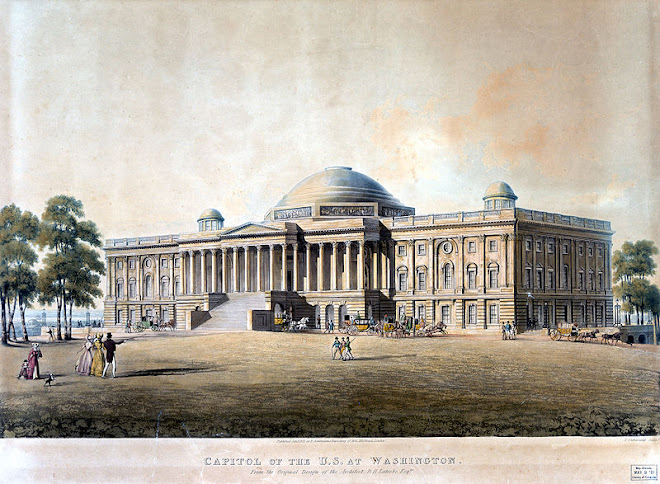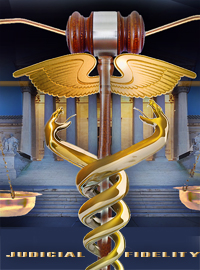From CFIF:
| Overturning ObamaCare Wouldn’t Constitute “Judicial Activism” |  |
| BY TIMOTHY H. LEE THURSDAY, MARCH 29 2012 |
This week, it suddenly dawned on bewildered liberals that ObamaCare’s legality was dubious after all.
Behold New York Times bubble-dweller Linda Greenhouse, prior to this week’s oral arguments before the Supreme Court: “The notion that Congress somehow lacks the power to regulate, restructure or basically do whatever it wants in the health care sector, which accounts for 17 percent of the gross domestic product, is far-fetched on its face.” [Emphasis added.]
Perhaps Ms. Greenhouse never devoted serious thought to the Constitution’s actual structure and text, or pondered the absurdity of the notion that the Founding Fathers inserted the interstate commerce clause into the Constitution for no reason whatsoever. After all, that would be the effective result if the Article I provision allowing Congress “To regulate commerce … among the several States” somehow allowed Congress to “basically do whatever it wants.” The framers were intelligent men, and could have simply stated, “Congress can basically do whatever it wants” if that was their intent.
That notion met a rude reception from the initial question, when Justice Anthony Kennedy asked, “Can you create commerce in order to regulate it?” By the end of the day, CNN’s Jeffrey Toobin proclaimed, “This was a train wreck for the Obama Administration, this law looks like it’s going to be struck down.”
Toobin’s pronouncement may ultimately prove as unfounded as his earlier prediction that this would all be smooth sailing for the Obama Administration. At the very least, however, liberal observers now understand that eye-rolling and Nancy Pelosi’s “Are you serious?” mentality are no substitute for sober constitutional analysis.
Stunned liberals immediately began cannibalizing Obama Administration Solicitor General Donald Verrilli, as if the problem was his competence rather than the untenable statute he was forced to defend. Then, ObamaCare’s defenders commenced a partisan campaign to slur any decision overturning the law in whole or in part as “judicial activism.”
According to Neera Tanden of the liberal Center for American Progress, “If they overturn the individual mandate and undermine the central element of this bill a few months before the election, it will anger Democrats and rile up the base. People will see it for what it is: an activist court rendering a partisan decision.”
But reality is precisely the opposite. To refrain from overturning ObamaCare based upon timid political calculations would constitute judicial activism. In contrast, ruling that the statute contravenes constitutional text would constitute judicial fidelity, which Webster’s defines as “faithfulness to obligations, duties, or observances.”
That’s because a judge’s responsibility in our constitutional democracy is to impartially apply laws. Otherwise, we become a nation of men, not of laws, as judges alternatively act as unrestrained oligarchs or subservient deputies of the legislative and executive branches. In either scenario, our system of separation of powers and checks and balances deteriorates, and rule of law recedes to the will of those in power.
As memorialized by Alexander Hamilton in The Federalist Number 78, Constitutional liberties “can be preserved in practice no other way than through the medium of courts of justice, whose duty it must be to declare all acts contrary to the manifest tenor of the Constitution void”:
“No legislative act, therefore, contrary to the Constitution, can be valid… The courts were designed to be an intermediate body between the people and the legislature, in order, among other things, to keep the latter within the limits assigned to their authority. The interpretation of the laws is the proper and peculiar province of the courts. A constitution is, in fact, and must be regarded by the judges, as a fundamental law. It must therefore belong to them to ascertain its meaning, as well as the meaning of any particular act proceeding from the legislative body… Where the will of the legislature, declared in its statutes, stands in opposition to that of the people, declared in the Constitution, the judges ought to be governed by the latter rather than the former.”
Accordingly, a recognition that ObamaCare stands in opposition to the Constitution’s limitation of powers would not amount to “judicial activism.” Rather, elevating political calculations or Congressional courtesy over legal text would.
Our Constitution established its system of checks and balances and separation of powers in order to protect individual freedom against encroachment by the other branches. It is now the Supreme Court’s responsibility to fulfill that duty by overturning ObamaCare. To do otherwise based upon peripheral considerations would constitute the true manifestation of “judicial activism.”
|
.gif)





































